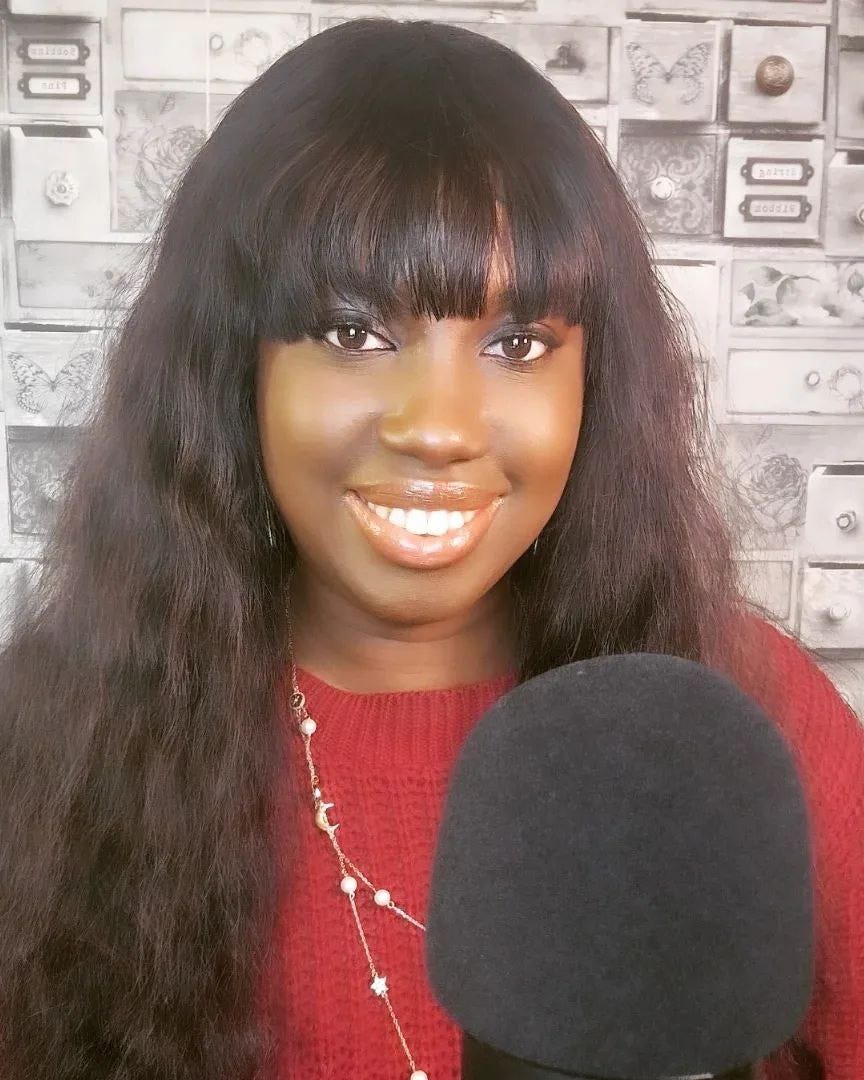My Problem With The Term "Black Excellence" - Ada Akpala
A linguistic and philosophical shift is needed
I am still struggling to grapple with certain racialised concepts, especially those strictly predicated on colour labels. I previously wrote about My Problem With The Term "Black Experience,” and why I find this type of categorical labelling to be divisive, unconstructive and polarising.
On one level, I understand the positive intentions behind celebrating exceptional achievements within the “black community” across various professional spheres. However, I believe singling out the race of people is ultimately unnecessary.
It can also prove detrimental for black individuals, as those who achieve excellence in their respective fields often find themselves shouldering the burden of representing their entire race. This pressure can be overwhelming and may lead to imposter syndrome or burnout as they feel they must constantly prove themselves.
Racialising universal concepts tends to fuel an “us versus them” tribalism that our increasingly multi-ethnic societies have no place for. If the goal is to highlight underrecognised accomplishments and continue the push for more equitable representation, why qualify it at all? Why not simply champion “excellence?”
Advocates may contend that there is no fixed definition or single understanding of "black excellence." However, in practice, these racialised constructs consistently neglect the multiplicity of perspectives and life experiences within these demographics.
The concept of "black excellence" is often promoted in a selective way. And there appears to be an unspoken rule that to qualify as an exemplar, one must align with or believe in certain established narratives surrounding oppression and struggle.
I've always been curious about why the outstanding achievements of figures like Lord Sewell, Kemi Badenoch, Mercy Muroki, Trevor Philips and Inaya Folarin Iman fail to receive widespread praise or mainstream acclaim. Even worse, they often encounter backlash, as their views are sometimes seen as problematic for black people. They frequently, and rightfully, refuse to conform to the accepted narrative of trauma and grievance. As a result, their excellence becomes meaningless—or even threatening—to some.
This reveals concerning double standards: why must celebrating black excellence be contingent on ideological conformity?
Recently, I had a conversation with my friend Patience about my frustrations regarding the concept of “the black community.” During our discussion, we also explored the idea of black excellence. Patience offered a fair perspective; she explained that she could appreciate the notion of black excellence because spotlighting talent, intelligence, and creativity pushes back against dominant narratives that limit black people's sense of possibility and self-worth.
Indeed, this is a valid point. However, I have observed that initiatives meant to highlight black excellence, while well-intended, often have the unintended effect of reinforcing victimhood narratives by intricately linking accomplishments to oppression. Take, for instance, Victor Glover's groundbreaking achievement as the first black astronaut to orbit the moon – a milestone worthy of celebration. Yet, the LA Times article covering this event allocated almost as much space to discussions of slavery, injustice and historical oppression as it did to Glover’s accomplishments.
This approach doesn't uplift or empower, and any semblance of empowerment it offers is merely superficial. I often find that the highlighting of black excellence or “black achievement” still perpetuates the narrative of "black adversity" instead of subverting it.
What is needed is a new narrative framework: one where “black excellence” is rightfully championed as a norm rather than an improbability that requires contextualisation to racism for credibility. A linguistic and philosophical shift will allow us to build these new narratives.
The universal concept of excellence represents the highest levels of human achievement and merit. Modifying excellence by race, gender or other attributes dilutes its meaning and introduces problematic assumptions. True empowerment means allowing excellence to stand on its own without qualifiers.
Ada is the Head of Content at The Equiano Project. Subscribe to The Equiano Project YouTube channel HERE.






As the self-styled leading black British philosopher of my generation and founder of Black Cartesianism I've been dismissed as stupid, deluded and more. I'm okay with that. I never say 'we need more black philosophers', I set out long ago to be that person. Truth be told I never really set out to be a 'black philosopher'. 'Black Cartesianism' is a joke, I'm not 'black' as a matter of consciousness I am not 'black' and never have been. When I say Cartesian I mean a way of thinking or philosophising. I mean that I begin with me. To be a ' black philosopher' I would have to take a metaphysical leap. I would have to adopt a consciousness of the world that is chosen? selected? Imposed? Not a consciousness that evolves out of my own experience.
If we want to be great, then we have to become great, this involves recognising that we aren't great right now, perhaps divising a plan, and maybe at some point acknowledging that despite our best efforts we didn't quite make it. As for praise and recognition, who do we want praise and recognition from? The great jazz musician Miles Davis would famously turn his back to the audience as a sign of his indifference to them. A well-known soul singer, I can't remember who, said ' you need one other person apart from your mother who values what you do'. If we want to build something new (perhaps we need a 'we'), 'we' need to grow with our audience. To understand my Cartesianism you might need to find out something about Descartes. We (the new 'we') need to praise, recognise and challenge and criticise each other.
I think that Apa's list is a mixed bag, certainly Inaya has a remarkable skill-set. My super power is conceptual thinking, my challenge is to 'you', if you think that I'm wrong or deluded or whatever, that's okay, let me know. 'We' can combine our abilities.
Excellent point!